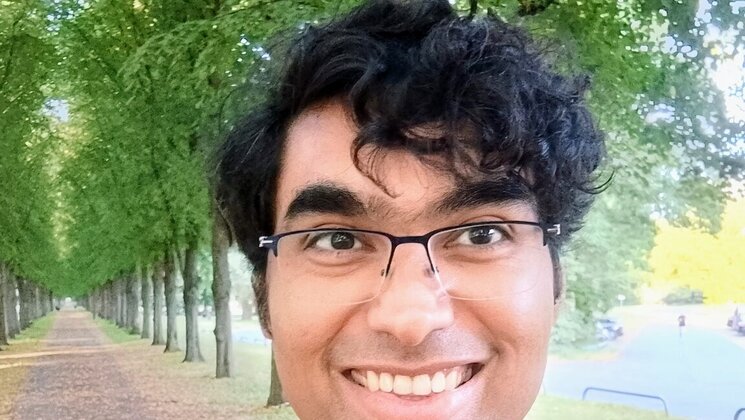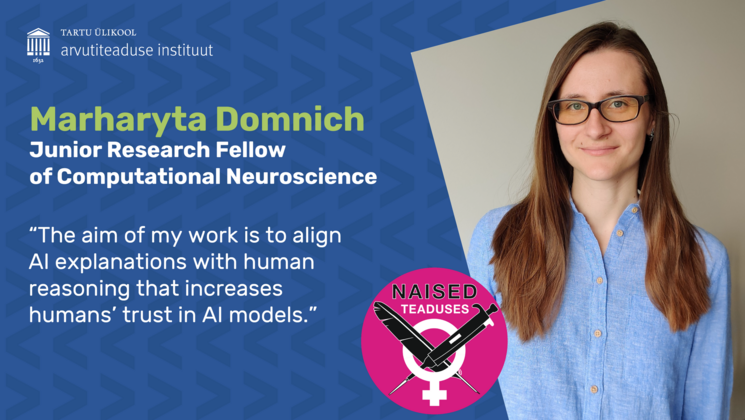-
Faculty of Arts and HumanitiesDean's Office, Faculty of Arts and HumanitiesJakobi 2 ruumid 116–121, 51005 Tartu linn, EST0Institute of History and ArchaeologyJakobi 2 51005 Tartu linn, Tartu linn, Tartumaa EST0Institute of Estonian and General LinguisticsJakobi 2, IV korrus 51005 Tartu linn, Tartu linn, Tartumaa EST0Institute of Philosophy and SemioticsJakobi 2, III korrus, ruumid 302-337 51005 Tartu linn, Tartu linn, Tartumaa EST0Institute of Cultural ResearchÜlikooli 16 51003 Tartu linn, Tartu linn, Tartumaa EST0Institute of Foreign Languages and CulturesLossi 3 51003 Tartu linn, Tartu linn, Tartumaa EST0School of Theology and Religious StudiesÜlikooli 18 50090 Tartu linn, Tartu linn, Tartumaa EST0Viljandi Culture AcademyPosti 1 71004 Viljandi linn, Viljandimaa EST0Professors emeriti, Faculty of Arts and Humanities0Associate Professors emeriti, Faculty of Arts and Humanities0Faculty of Social SciencesDean's Office, Faculty of Social SciencesLossi 36 51003 Tartu linn, Tartu linn, Tartumaa EST0Institute of EducationJakobi 5 51005 Tartu linn, Tartu linn, Tartumaa EST0Johan Skytte Institute of Political StudiesLossi 36, ruum 301 51003 Tartu linn, Tartu linn, Tartumaa EST0School of Economics and Business AdministrationNarva mnt 18 51009 Tartu linn, Tartu linn, Tartumaa EST0Institute of PsychologyNäituse 2 50409 Tartu linn, Tartu linn, Tartumaa EST0School of LawNäituse 20 - 324 50409 Tartu linn, Tartu linn, Tartumaa EST0Institute of Social StudiesLossi 36 51003 Tartu linn, Tartu linn, Tartumaa EST0Narva CollegeRaekoja plats 2 20307 Narva linn, Ida-Virumaa EST0Pärnu CollegeRingi 35 80012 Pärnu linn, Pärnu linn, Pärnumaa EST0Professors emeriti, Faculty of Social Sciences0Associate Professors emeriti, Faculty of Social Sciences0Faculty of MedicineDean's Office, Faculty of MedicineRavila 19 50411 Tartu linn, Tartu linn, Tartumaa ESTInstitute of Biomedicine and Translational MedicineBiomeedikum, Ravila 19 50411 Tartu linn, Tartu linn, Tartumaa ESTInstitute of PharmacyNooruse 1 50411 Tartu linn, Tartu linn, Tartumaa ESTInstitute of DentistryL. Puusepa 1a 50406 Tartu linn, Tartu linn, Tartumaa ESTInstitute of Clinical MedicineL. Puusepa 8 50406 Tartu linn, Tartu linn, Tartumaa ESTInstitute of Family Medicine and Public HealthRavila 19 50411 Tartu linn, Tartu linn, Tartumaa ESTInstitute of Sport Sciences and PhysiotherapyUjula 4 51008 Tartu linn, Tartu linn, Tartumaa ESTProfessors emeriti, Faculty of Medicine0Associate Professors emeriti, Faculty of Medicine0Faculty of Science and TechnologyDean's Office, Faculty of Science and TechnologyVanemuise 46 - 208 51003 Tartu linn, Tartu linn, Tartumaa ESTInstitute of Computer ScienceNarva mnt 18 51009 Tartu linn, Tartu linn, Tartumaa ESTInstitute of GenomicsRiia 23b/2 51010 Tartu linn, Tartu linn, Tartumaa ESTEstonian Marine Institute0Institute of PhysicsInstitute of ChemistryRavila 14a 50411 Tartu linn, Tartu linn, Tartumaa EST0Institute of Mathematics and StatisticsNarva mnt 18 51009 Tartu linn, Tartu linn, Tartumaa EST0Institute of Molecular and Cell BiologyRiia 23, 23b - 134 51010 Tartu linn, Tartu linn, Tartumaa ESTTartu ObservatoryObservatooriumi 1 61602 Tõravere alevik, Nõo vald, Tartumaa EST0Institute of TechnologyNooruse 1 50411 Tartu linn, Tartu linn, Tartumaa ESTInstitute of Ecology and Earth SciencesJ. Liivi tn 2 50409 Tartu linn, Tartu linn, Tartumaa ESTProfessors emeriti, Faculty of Science and Technology0Associate Professors emeriti, Faculty of Science and Technology0Institute of BioengineeringArea of Academic SecretaryHuman Resources OfficeUppsala 6, Lossi 36 51003 Tartu linn, Tartu linn, Tartumaa EST0Area of Head of FinanceFinance Office0Area of Director of AdministrationInformation Technology Office0Administrative OfficeÜlikooli 17 (III korrus) 51005 Tartu linn, Tartu linn, Tartumaa EST0Estates Office0Marketing and Communication OfficeÜlikooli 18, ruumid 102, 104, 209, 210 50090 Tartu linn, Tartu linn, Tartumaa EST0Area of Vice Rector for DevelopmentCentre for Entrepreneurship and InnovationNarva mnt 18 51009 Tartu linn, Tartu linn, Tartumaa EST0University of Tartu Natural History Museum and Botanical GardenVanemuise 46 51003 Tartu linn, Tartu linn, Tartumaa EST0International Cooperation and Protocol Office0University of Tartu MuseumLossi 25 51003 Tartu linn, Tartu linn, Tartumaa EST0Area of RectorRector's Strategy OfficeInternal Audit OfficeArea of Vice Rector for Academic AffairsOffice of Academic AffairsUniversity of Tartu Youth AcademyUppsala 10 51003 Tartu linn, Tartu linn, Tartumaa EST0Student Union OfficeÜlikooli 18b 51005 Tartu linn, Tartu linn, Tartumaa EST0Centre for Learning and TeachingArea of Vice Rector for ResearchUniversity of Tartu LibraryW. Struve 1 50091 Tartu linn, Tartu linn, Tartumaa EST0Grant Office
Record high number of participants in 3-minute thesis competition

The three-minute thesis competition for the University of Tartu doctoral students on 11 November saw a record number of participants. Twenty-eight doctoral students took part in this year’s competition with 29 presentations, including nine in Estonian and 20 in English. The best three presenters in Estonian will have an opportunity to represent the University of Tartu at the Estonian Academy of Science competition “Science in Three Minutes”. The best presentation in English will represent the university at the international Coimbra Group 3-Minute Thesis competition.
The top three in the Estonian competition were:
- Kertu Liis Krigul “Antibiootikum – kas hunt lambanahas?”;
- Jürgen Karvak “Linna vooluveekogude tähtsus”;
- Kristo Raun “Otsetee otsusteni – vastavuskontrolli tegemine voogandmetel”.
Kertu Liis Krigul, Junior Research Fellow in Microbiomics at the Institute of Genomics, in her presentation, viewed the risks that the misuse of antibiotics poses to humans and the environment.
Jürgen Karvak, Junior Research Fellow in Stream Ecology at the Institute of Ecology and Earth Sciences, talked about small watercourses as oases of biodiversity in urban ecosystems.
Kristo Raun, Junior Research Fellow in Big Data at the Institute of Computer Science, introduced his research that aims to use streaming data to improve business processes.
The top three in the English competition were:
- Quazi Saimoon Islam “Visual methods for planetary surface navigation”;
- Sanni Färkkilä “Light at the End of the Tunnel”;
- Biplabi Bhattarai “Studying plant roots to understand the effect of global warming on the ecosystem”.
Quazi Saimoon Islam, Junior Research Fellow in Space Technology at Tartu Observatory, develops robots’ orientation skills for navigating unfamiliar environments, such as the forest, but also on the Moon or Mars.
Sanni Färkkilä, Junior Research Fellow in Mycology at the Institute of Ecology and Earth Sciences, in her presentation, drew attention to the phosphorus crisis looming in agriculture by the end of the century. While phosphorus is one of the most vital substances for plant growth, phosphorite supplies for fertiliser production are running low. Sanni uses fluorescent nanoparticles to study how fungi can capture and transfer phosphorus from the soil to plants. Understanding this mechanism could help alleviate the impending fertiliser crisis.
Biplabi Bhattarai, Junior Research Fellow in Landscape Ecology at the Institute of Ecology and Earth Sciences, studies the effect of global warming on plant roots to understand better how the Earth’s ecosystems will respond to future climate changes.
Representatives of all faculties proposed solutions to burning issues
The winning presentations show that University of Tartu doctoral students are looking for solutions to diverse societal problems. Participants were from each university faculty: 21 doctoral students from the Faculty of Science and Technology, four from the Faculty of Social Sciences, two from the Faculty of Medicine, and one from the Faculty of Arts and Humanities.
The competition jury comprised Airika Harrik, journalist of the ERR Novaator science portal; Alina Roštšinskaja, finalist in the Estonian Academy of Sciences competition last year, a doctoral student in Medicine and resident in Pediatrics; Tuul Sepp, Associate Professor in Animal Ecology; Maret Ahonen, Startup Lab Manager; Mart Alaru, Research Communication Specialist at Johan Skytte Institute of Political Studies; and Monika Tasa, Development Adviser of the Office of Academic Affairs.
Winners of the competition in Estonian will represent the university at the Estonian Academy of Sciences competition “Science in Three Minutes” at the beginning of the next year. The best five presenters will be determined in the national finals. A professional production team will make three-minute videos of their presentations, which will be broadcast on Estonian Television in April. Viewers will choose their favourite from the video presentations shown on television.
The video recording of the best presentation in English will be sent as the University of Tartu’s representative to the international Coimbra Group 3-minute thesis competition. There, an international judging panel will select from all participants the best three who get the opportunity to participate in the finals held during the Coimbra Group Annual Conference.
Participation in the three-minute thesis competition is an excellent way to introduce your research to larger audiences and learn about the work of doctoral students in other research fields. At the competition, the doctoral students gave an engaging three-minute presentation to briefly introduce the aim of their research, the problem to be solved and the method of solution. A video recording was made of each presentation. In cooperation with ERR Novaator, some presentations will also reach a wider audience.
Read more similar news






